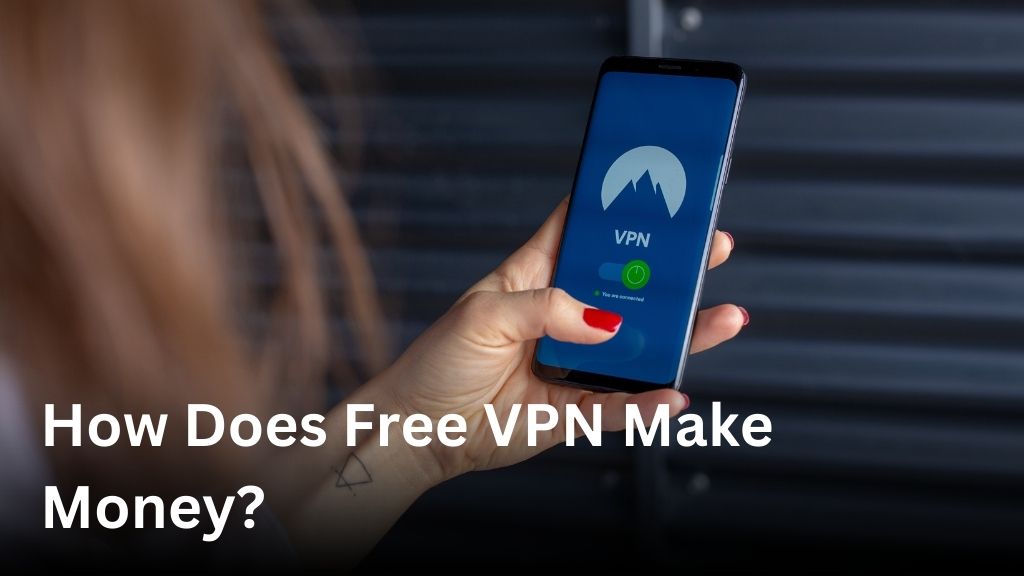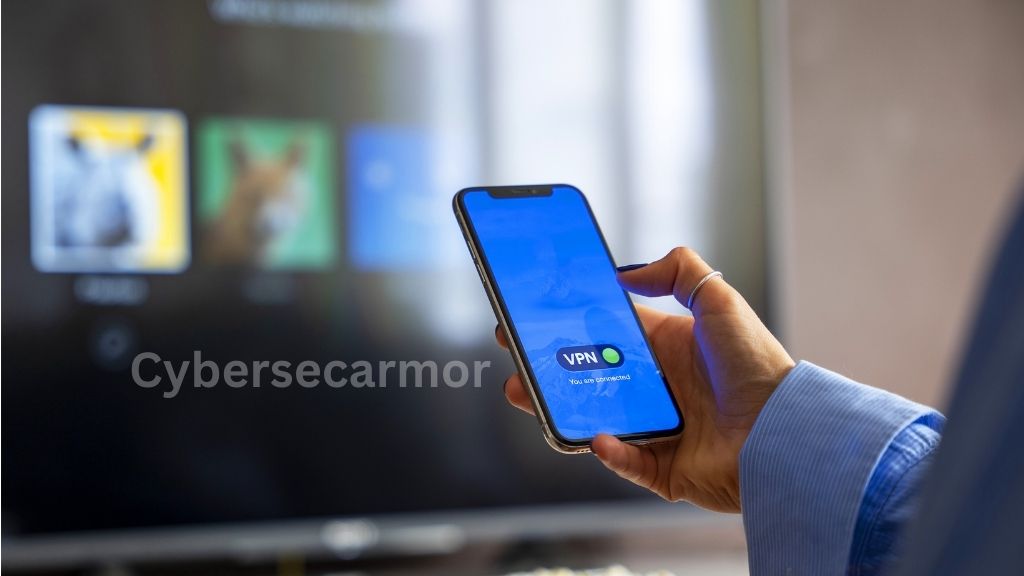How Does Free VPN Make Money?

Are you wondering how free VPNs can offer their services without charging you a dime? Well, as the saying goes, “there’s no such thing as a free lunch.” In this article, we will delve into the world of VPN revenue models and the various monetization strategies employed by free VPN providers. Let’s explore the ways in which these providers generate income while offering their services for free.
Advertising and Sponsored Content

One of the most common ways free VPNs generate revenue is through advertising. These VPN providers strategically display advertisements within their apps or websites, allowing advertisers to reach a targeted audience. By partnering with brands and companies, free VPNs can offer ad-supported services to their users.
In addition to traditional advertising, some free VPNs also offer sponsored recommendations or promote specific apps to generate revenue. This means that while using the VPN, users may come across suggested apps or services that have been sponsored or paid for by the respective companies. This form of sponsored content provides an additional source of income for the VPN provider.
Advertisements in free VPN services play a crucial role in generating revenue for these providers. By partnering with advertisers, VPN providers can offer their services for free while still earning a profit. However, it’s essential for users to be aware that these advertisements may track their online activities and preferences to deliver targeted content.
Examples of Advertisements and Sponsored Content in Free VPN Services:
- Displayed banner ads within the VPN app or website
- Interstitial ads that appear between actions or when launching the app
- Sponsored recommendations for apps or services
- Promoted apps that are highlighted or featured within the VPN app
By leveraging the popularity of their free VPN services, providers can attract advertisers who are looking to tap into a large user base. Revenue from advertisers enables these VPN providers to continue offering their services for free while sustaining their operations and infrastructure.
Freemium Model
Another popular revenue model for free VPNs is the freemium model. These providers offer a free version of their VPN with limited features, while charging users for premium subscriptions or offering in-app purchases to unlock additional functionalities. By upselling to paid upgrades, free VPNs can generate income from users who require more advanced features.
With the freemium model, free VPNs entice users with a basic version of their service, providing essential features such as secure internet browsing and access to a limited number of servers. However, users who want to access additional features, such as faster connection speeds or increased server options, can choose to upgrade to a premium subscription or make in-app purchases.
Premium subscriptions in free VPNs typically come in the form of monthly or yearly plans, offering users unlimited data, enhanced security features, and priority customer support. These subscriptions provide a steady revenue stream for VPN providers and allow users to enjoy a more comprehensive VPN experience.
Additionally, in-app purchases are becoming increasingly popular among free VPNs. These purchases can unlock additional features, such as ad-blocking capabilities or access to premium server locations. By offering these extra functionalities as in-app purchases, VPN providers can cater to users who have specific needs or preferences, further generating revenue from their free service.
Upselling is a key strategy in the freemium model, enticing users with a taste of the VPN service’s capabilities and then encouraging them to upgrade to a paid version. VPN providers often strategically position the paid upgrades and additional features within their app interface, making them easily accessible to free users looking for an enhanced VPN experience.
Benefits of the Freemium Model
The freemium model offers several benefits for both the users and the VPN providers:
- Access to essential features for free: Users can benefit from basic VPN functionality without having to pay for a subscription, ensuring privacy and security while browsing the internet.
- Flexibility to choose additional features: Free users have the option to choose which additional features they need and pay only for those functionalities, tailoring their VPN experience to their specific requirements.
- Revenue generation for VPN providers: By offering premium subscriptions and in-app purchases, VPN providers can generate revenue to sustain their free services, invest in infrastructure, and continuously improve their offerings.
- Opportunity for users to test the service: The freemium model allows users to try out the VPN service before committing to a paid subscription, ensuring that the service meets their expectations and requirements.
The freemium model has proven to be an effective way for VPN providers to monetize their free offerings while providing users with options to enhance their VPN experience. However, it’s essential for users to carefully evaluate the cost-benefit ratio before opting for premium subscriptions or in-app purchases, considering their individual needs and budget.
Data Selling and Analytics
Many free VPNs engage in the collection of user data, which is then sold to third-party companies for analysis and targeted advertising purposes. These VPN providers track user behavior and preferences to gain a better understanding of their audience.
By monetizing this user data and offering valuable insights to businesses, free VPNs can generate revenue to support their free services. However, it is important to note that this practice raises concerns about user privacy and data security.
Some of the data collected and analyzed by free VPNs may include:
- User browsing history
- IP addresses
- Device information
- Location data
- Online activities
This user data is then sold to third-party companies, which may use it for various purposes such as:
- Targeted advertising: Advertisers can leverage user data to create personalized advertisements and increase the effectiveness of their marketing campaigns.
- User behavior analysis: By analyzing user data, businesses can gain insights into consumer preferences and trends, helping them refine their products and services.
- Market research: User data can provide valuable information about consumer behavior, allowing companies to make informed decisions and improve their competitive edge.
While this data selling model enables free VPN providers to offer their services without charging users directly, it raises important privacy considerations. Users should be aware that their data is being collected and sold, and should carefully weigh the potential benefits against the potential risks when using free VPN services.
Examples of User Data Collected by Free VPNs
| Data Type | Description |
|---|---|
| Browsing History | Record of websites visited by the user |
| IP Addresses | Unique identifier assigned to devices connected to the internet |
| Device Information | Details about the user’s device, including operating system and hardware specifications |
| Location Data | Information about the user’s physical location at the time of browsing |
| Online Activities | Actions performed by the user online, such as purchases and interactions with websites |
Conclusion
In conclusion, free VPNs have implemented diverse strategies to generate income while providing their services at no cost to users. These VPN providers rely on advertising and sponsored content, freemium models, and data selling to sustain their operations and fund the development and maintenance of their VPN services.
By displaying ads within their apps or websites, free VPNs can monetize their user base and generate revenue from advertisers. Additionally, some providers offer sponsored recommendations or promote specific apps to further increase their income. This advertising and sponsored content approach allows free VPNs to offer their services for free while still capitalizing on the value of their user base.
Furthermore, free VPNs often employ the freemium model, where they offer a basic version of their VPN with limited features for free while charging for premium subscriptions or offering in-app purchases to unlock additional functionalities. This strategy allows VPN providers to cater to different user segments and generate revenue from users who require more advanced features or enhanced privacy and security.
Lastly, certain free VPNs engage in the collection and selling of user data to third-party companies. By analyzing user behavior and preferences, these VPN providers can generate income by offering valuable insights and targeted advertising opportunities. However, it’s important for users to be aware of these data practices and the potential implications on their privacy and security.
FAQ
How do free VPNs make money?
Free VPNs generate revenue through various monetization strategies. These include advertising and sponsored content, freemium models, and data selling and analytics.
How do free VPNs earn money from advertising?
Free VPNs display ads within their apps or websites, allowing advertisers to reach a targeted audience. They may also offer sponsored recommendations or promote certain apps to generate income.
What is the freemium model for free VPNs?
The freemium model involves offering a free version of the VPN with limited features. Users can then opt for premium subscriptions or in-app purchases to unlock additional functionalities or access advanced features.
Do free VPNs sell user data?
Some free VPNs collect user data and sell it to third-party companies for analysis or targeted advertising. This practice allows them to monetize user information and offer insights to businesses.
Should users be concerned about their privacy when using free VPNs?
Yes, users should be aware of the potential implications on their privacy and security when using free VPNs. It is important to understand the monetization strategies employed by these VPN providers and consider the risks before using their services.
